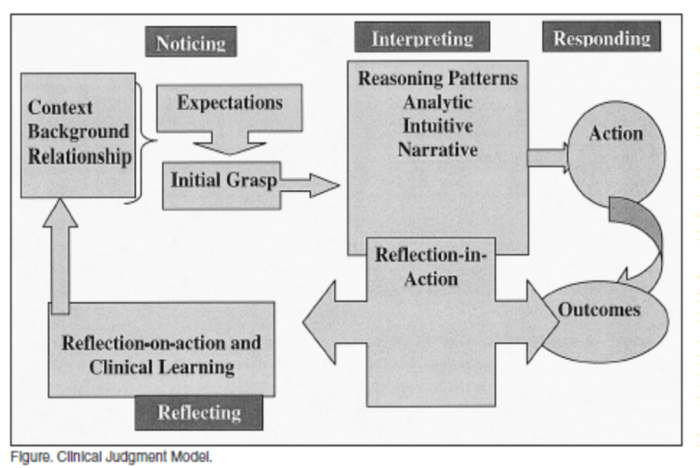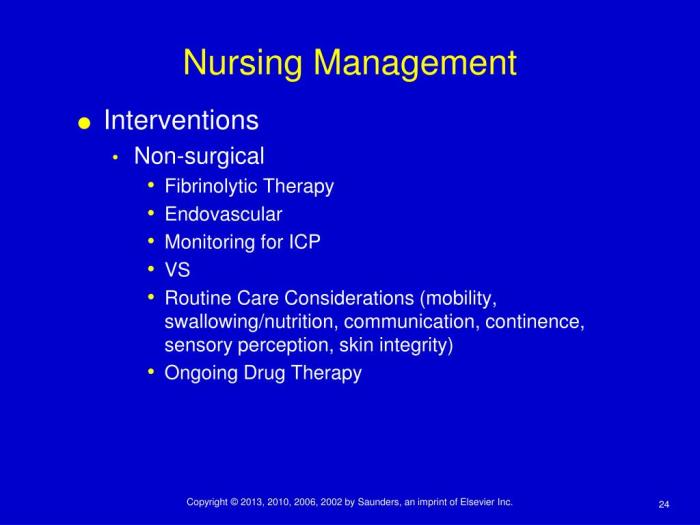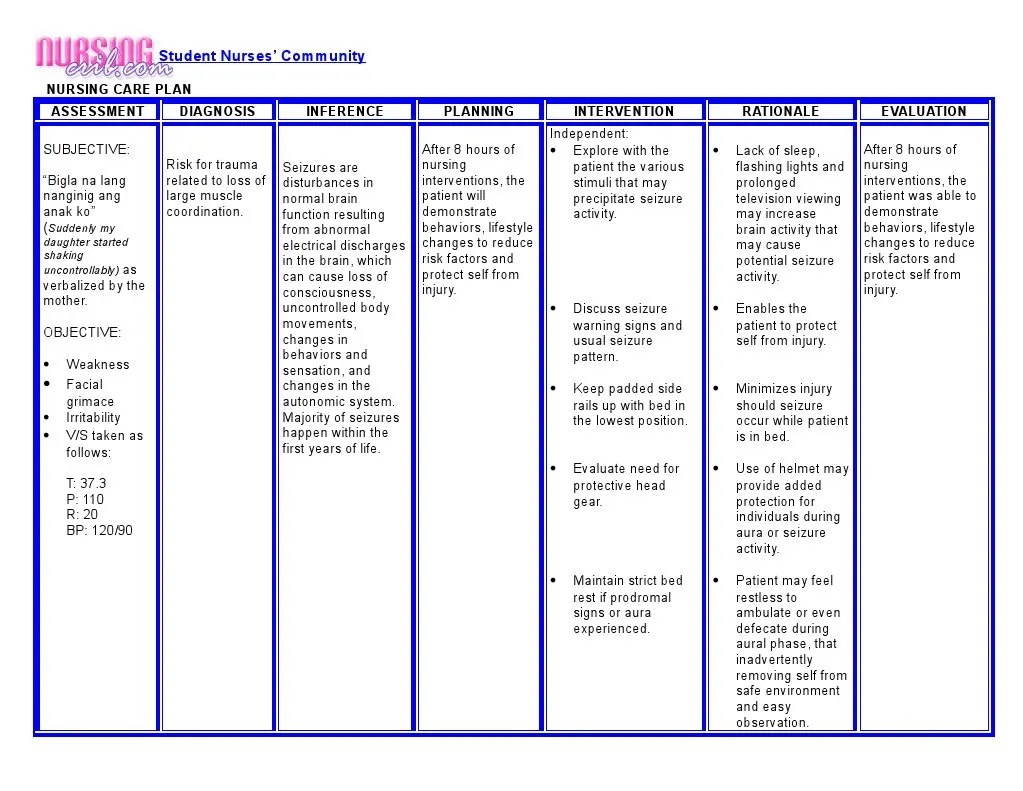Nursing care complex intracranial and neurologic alterations delves into the intricacies of caring for patients with complex intracranial and neurologic conditions. This comprehensive guide provides a thorough understanding of the pathophysiology, assessment, management, and rehabilitation of these alterations, empowering nurses to deliver exceptional care.
From understanding the underlying mechanisms of intracranial and neurologic alterations to implementing evidence-based interventions, this guide equips nurses with the knowledge and skills necessary to navigate the complexities of this specialized field.
Nursing Care for Complex Intracranial and Neurologic Alterations

Intracranial and neurologic alterations encompass a wide range of conditions that affect the brain and nervous system. Understanding their pathophysiology, signs, and symptoms is crucial for effective nursing care.
Common Signs and Symptoms
- Headache
- Nausea and vomiting
- Seizures
- Altered consciousness
- Motor and sensory deficits
Nursing Interventions
- Maintaining a patent airway
- Administering medications as prescribed
- Monitoring vital signs
- Preventing complications
- Providing emotional support
Monitoring and Assessment of Intracranial and Neurologic Alterations

Ongoing monitoring and assessment are essential for managing intracranial and neurologic alterations.
Methods of Monitoring
- Neurological examination
- Computed tomography (CT) scan
- Magnetic resonance imaging (MRI)
- Electroencephalography (EEG)
- Transcranial Doppler (TCD)
Importance of Assessment
Assessment helps to:
- Establish a baseline
- Detect changes in condition
- Evaluate treatment effectiveness
- Identify complications
Role of the Nurse
Nurses play a crucial role in monitoring and assessing intracranial and neurologic alterations by:
- Performing neurological examinations
- Interpreting diagnostic tests
- Documenting changes in condition
- Communicating findings to the healthcare team
Pharmacologic Management of Intracranial and Neurologic Alterations: Nursing Care Complex Intracranial And Neurologic Alterations
Medications are commonly used to treat intracranial and neurologic alterations.
Types of Medications
- Anticonvulsants
- Anti-inflammatories
- Antiemetics
- Vasodilators
- Antihypertensives
Mechanism of Action, Side Effects, and Nursing Considerations, Nursing care complex intracranial and neurologic alterations
| Medication | Mechanism of Action | Side Effects | Nursing Considerations |
|---|---|---|---|
| Phenytoin | Blocks voltage-gated sodium channels | Dizziness, nystagmus, ataxia | Monitor for adverse effects, check serum levels |
| Dexamethasone | Reduces cerebral edema | Hyperglycemia, fluid retention | Monitor blood glucose, weight |
Surgical Management of Intracranial and Neurologic Alterations

Surgery may be necessary to treat some intracranial and neurologic alterations.
Types of Surgical Interventions
- Craniotomy
- Endovascular procedures
- Stereotactic radiosurgery
Indications, Risks, and Benefits
| Procedure | Indications | Risks | Benefits |
|---|---|---|---|
| Craniotomy | Brain tumors, hematomas | Infection, hemorrhage | Removal of lesions |
| Endovascular procedures | Aneurysms, stenotic vessels | Stroke, embolism | Minimally invasive treatment |
Role of the Nurse
Nurses play a vital role in caring for patients undergoing surgical management by:
- Preoperative preparation
- Postoperative monitoring
- Wound care
- Patient education
Rehabilitation and Recovery from Intracranial and Neurologic Alterations

Rehabilitation is essential for helping patients recover from intracranial and neurologic alterations.
Types of Rehabilitation Therapies
- Physical therapy
- Occupational therapy
- Speech therapy
- Cognitive rehabilitation
Role of the Nurse
Nurses play a key role in promoting rehabilitation and recovery by:
- Encouraging patient participation
- Providing support and motivation
- Educating patients and families
- Advocating for patient needs
Patient Education and Support Strategies
- Providing information about the condition and treatment
- Encouraging support groups
- Offering counseling services
- Assisting with assistive devices
Expert Answers
What are the common signs and symptoms of intracranial and neurologic alterations?
Common signs and symptoms include headache, nausea, vomiting, confusion, seizures, and changes in consciousness.
How is intracranial pressure monitored?
Intracranial pressure can be monitored using invasive methods such as an intraventricular catheter or lumbar puncture, or non-invasive methods such as transcranial Doppler ultrasonography.
What are the goals of pharmacologic management in intracranial and neurologic alterations?
Goals of pharmacologic management include reducing intracranial pressure, controlling seizures, and managing pain and other symptoms.